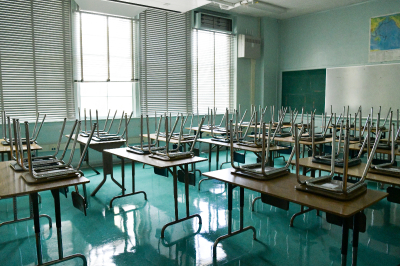Oregon’s educational reform should be a warning sign for our nation's schools

Don’t let American public schools copy Oregon State standards: lowering high school graduation requirements so that no student can possibly be denied a diploma. Thanks to Oregon’s Governor Kate Brown signing Senate Bill 744 into law, now high school students need not worry about proficiency in math, reading, or writing. Apparently, it is discriminatory to students of color to have these unfair requirements in order to graduate.
In essence, in the name of racial equity, all students will be handed a diploma regardless of effort, excellence, or cognitive ability. If we ever hope to have real equity in our communities it will not be through having the next generation of citizens unable to read, write, or comprehend basic math skills.
Low-income and indigenous students populate the rural Western Washington State schools where I live. Rather than lowering expectations, there is an effort to increase learning opportunities. Where possible, federal funding is used to provide extra tutoring, so students don’t lag behind. In one remote Native American village, the graduation rate is nearly 100% and colleges are seeking these students and offering generous scholarships. This wouldn’t be possible if the students had been held back with low-bar expectations.
COVID interruptions with in-person classroom time have made this a critical year for all our students. According to a recent McKinsey report, students are 4 months behind on reading and 5 months behind on mathematics, compared to where they would have been had school not shuttered. Schools that predominately serve students of color and low-income children have even greater shortfalls in academic progress. Currently, America has 12 million marginalized students — this could easily be America’s next poverty-stricken generation.
But here’s something all schools can take advantage of — the $190 billion in emergency federal COVID school aid. Rather than lower expectations, let’s hire tutors, have extra classroom time, and prepare students for the global economy that is increasingly becoming more literate and computer science oriented.
In the name of diversity, equity, and inclusion we are quickly abandoning the prior efforts to increase American academic prowess. Remember President Obama’s Race to the Top? Let’s not lower the bar at a time when we need educated and motivated citizens. When pollsters asked citizens what the purpose of K-12 education is, many responded that it’s to help students have the skills needed for future employment. Unfortunately, some of Oregon’s high school graduates — many of them students of color — will be left with few skills and be sentenced to a lifetime of low-wage jobs.
We can do better America. We are pouring our tax dollars into our public schools. Let’s demand more and expect our school administrators to prioritize competency and literacy. It’s the only way we will prepare our graduates to face the demands of the 21st Century.
Karen Farris saw the need to help underserved kids while serving in a youth ministry that gave her the opportunity to visit rural schools on the Olympic Peninsula. She now volunteers her time grant writing to bring resources to kids in need. She also shares stories of faith in action for those needing a dose of hope on her weekly blog, Friday Tidings.www.fridaytidings.com




















